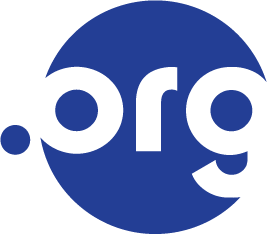


|
||
|
||
The new gTLD program is one of the most significant developments in the history of the domain name system and Public Interest Registry is doing its part. We’ve already launched Cyrillic, Hindi and Chinese versions of .org and are working hard to bring .ngo and .ong to serve Non-Governmental Organizations later this fall. However, not all of our time and effort is focused on new domains.
I was in Internet law enforcement for many years with the U.S. Federal Trade Commission, and am very fortunate to have been able to continue working on security, privacy, DNS abuse, and law enforcement related matters since joining Public Interest Registry. A significant part of my ongoing responsibilities is to be aware of issues that might affect the security and stability of the Internet, and to foster a continued sense of trust and safety in its use.
Public Interest Registry has demonstrated a commitment to ensuring public interest in a safe experience on the Internet by publishing an Anti-Abuse Policy. Violation of the Policy’s terms can result in forfeiture of the associated domain name. As should be expected, our forthcoming .ngo and .ong domains will operate with similar protections.
We also have been very active in outreach to the law enforcement and operational security communities. For example, Public Interest Registry co-sponsored the Anti Phishing Working Group’s (APWG) Counter e-Crime Operations Summit (CeCOS) VIII in Hong Kong. There I led an international panel on registry complaint handling approaches. We previously collaborated with APWG at last year’s CeCOS in Buenos Aires to bring together international experts to debate botnet mitigation practices. I also attended last year’s APWG eCrime Research Symposium in San Francisco where I discussed registry-level abuse mitigation practices with ccTLD operators. Another program is planned for later this year.
Of course, Public Interest Registry’s outreach and cooperation to protect the public interest on the Internet is not limited to APWG. I participated in this year’s South School on Internet Governance where I discussed security and stability in the realm of ICANN, both the organization and broader community. Previously I discussed cybersecurity policy issues at the LACTLD sponsored Latin American Community DNS Forum. I’ve also spoken at the National Cyber Forensics and Training Alliance, a model for cross-sector cooperation in fighting abuse on the Internet, and at an Infragard meeting. I currently serve on the Executive Board of the Coalition Against Unsolicited Commercial Email, one of the earliest antispam organizations, as well as on ICANN’s Security and Stability Advisory Committee, where I co-chair its Law Enforcement Outreach Working Party.
It’s probably no coincidence that almost all of the organizations that I mentioned in this article use .org domains. The Public Interest Registry has performed according to its name since it was created. We remain committed to protecting the public interest by making the Internet a trusted and safe place.
Written by Don Blumenthal, Senior Policy Advisory for Public Interest Registry
Sponsored byDNIB.com

Sponsored byRadix

Sponsored byCSC

Sponsored byVerisign

Sponsored byWhoisXML API

Sponsored byIPv4.Global

Sponsored byVerisign
